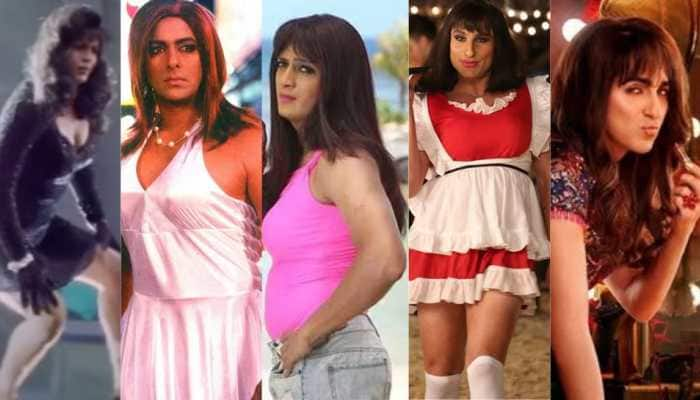Lucky Ali: If online clicks make you happy, you are a loser
In today's day and age, most artists are trying hard to stay relevant. For singer Lucky Ali, who has been in the music industry for over three decades, it's all about staying "irrelevant". He says that the number of online views his songs garner doesn't thrill him.
Trending Photos
)
New Delhi: In today's day and age, most artists are trying hard to stay relevant. For singer Lucky Ali, who has been in the music industry for over three decades, it's all about staying "irrelevant". He says that the number of online views his songs garner doesn't thrill him.
"I am happy when people like it (his song) but if you feel happy that 'oh my god! I got so many clicks', then you are a loser because that's what you depend on," Lucky told IANS.
"You should depend on what your heart says. Do you feel good about what you are doing or did you do it because you want 'that'? That is temporary. What is permanent is what your heart feels," added the 61-year-old.
Lucky, whose 1996 pop hit "O sanam" is still hummed by fans, zoomed into Bollywood spotlight as Hrithik Roshan's voice in the 2000 blockbuster, "Kaho Na... Pyar Hai", singing "Ek pal ka jeena" and "Na tum jaano na hum".
The introvert singer, however, gave it all up and went away from the limelight. Today, he says he doesn't make efforts to stay relevant.
"I try to stay irrelevant because it is not about me. It is not about an individual. It's about 'we'. It's more like a holographic kind of a thing. I see music like that. I see music in a diagram form. For me, when a process happens -- a holographic kind of a thing -- then if one doesn't function then someone else can do just the same thing, which can make that thing what you wanted it to be," explained the son of the legendary actor-comedian Mehmood.
Experience has taught him a lot, but he hasn't put a full stop to learning.
"You are still learning. When you think that you have learnt something, suddenly a kid comes and does it better than you and you say 'Oh my god!' So you don't know at all. There's always someone in some place that's got a better understanding of something that you do," said Lucky.
Well, he did embark on a new journey. He collaborated with Israeli music artiste Eliezer Botzer for an album titled "Lemalla". The cross-cultural project's first song "On my way" is out now.
"It was an honourable experience. Music is not so much different from ours but yes, the players are different. The instruments are similar to or close to our instrumentation. They have something called the tar which reminds me of a rabab," Lucky said.
He is also waiting to release more new music for his fans.
"I don't have anything planned. I have got music that I want to release...that I am trying to function in a way that it gets across to everybody with least amount of work. I don't want to work too much on that...you know sell my music. I definitely don't want to 'sell my music'.
"I want to share my music but then also that... it's like respect for people who listen to my music and then they respect us back. If we found a solution to how we pay for our music, how it comes back to us... We pay from our concerts. It's not something like a big company is there just piling money on you. We hit our sweat on the floor then utilise that money, go and record with other musicians, pay recording studios so it mainly comes back from the sweat that falls on the stage," he said referring to his concerts.
Joining hands with a big music label is not on his to-do list.
"I don't entertain the idea of going back to a music company because they will give me the same story that they gave me 15 years ago - 'We want to change the face of music'. Music will always be seven notes. You cannot change the face of music," said the artiste behind feel-good hits like "Kabhi aisa lagta hai" and "Dekha hai aise bhi".
Stay informed on all the latest news, real-time breaking news updates, and follow all the important headlines in india news and world News on Zee News.
Live Tv







)
)
)
)
)
)
)
)
)
)
